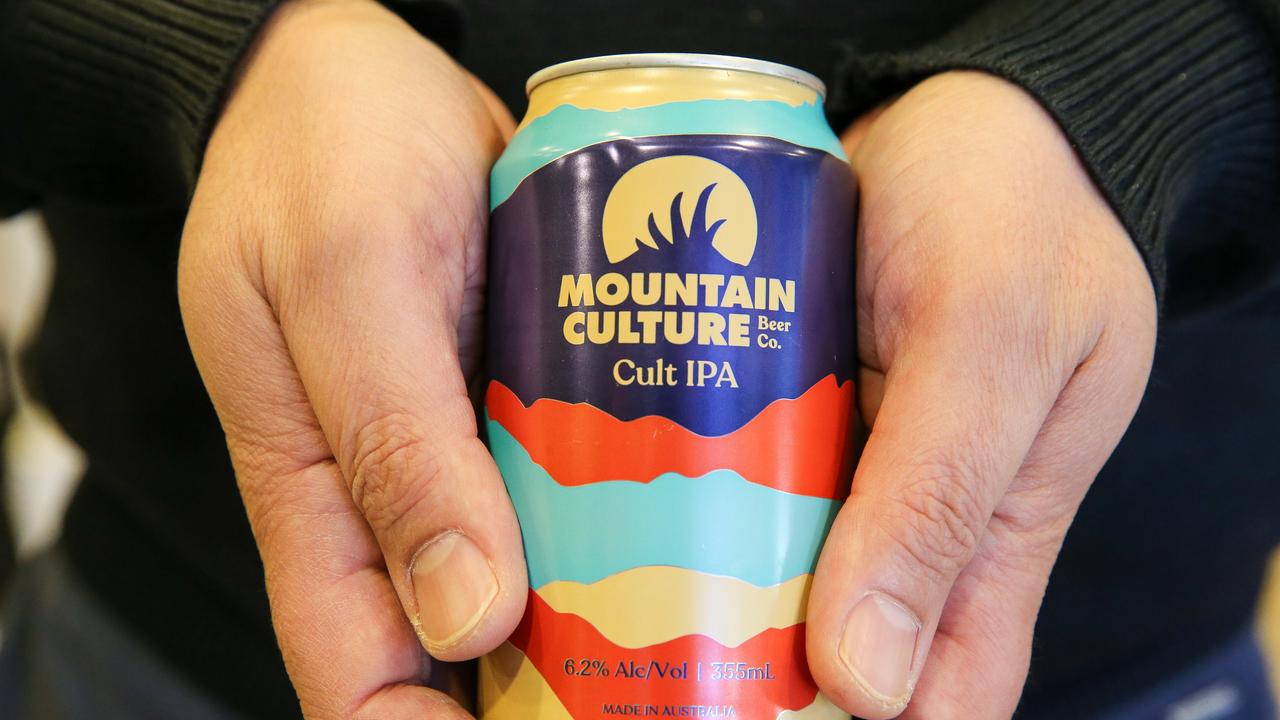Craft breweries fear beer tax hike amid cost of living crisis
The price of a schooner is expected to increase yet again, putting pressure on Australian breweries “crippled” by a cost of living crisis.
The price of a schooner or a glass of wine is expected to increase for the second time in a year, putting pressure on Australian breweries “crippled” by a cost of living crisis.
The cost of alcohol will likely rise on August 5 following the release of the ATO’s twice-annual Consumer Price Index which sets the government’s excise duty rates.
Sydney Brewery marketing manager Richard Feyn said the likely increase will be yet another blow to small-scale local breweries, many of which have already gone under.
“It’s crippling for the business and it’s killer for the consumers at a time when the market is tight and everyone has got financial issues,” Mr Feyn said.
“Craft beer is way more expensive than mainstream beer. We need to put the prices up because the taxes go up and the consumer doesn’t want the price to go up.”
Despite biannual increases, Mr Feyn said the brewery had largely decided not to put prices up from August 5 and “to sit tight because the market is not allowing us to”.

“We will lose our (profit) margin and that’s another reason the small places go under. Even worse, the cost of goods has gone up... so it’s a double whammy,” Mr Feyn said.
Dad N Dave’s Brewing operations manager Joel Meaney said they had also decided to largely wear changes to the CPI, lamenting that “people just don’t have the money”.
“We’ve been wearing some of the cost of the tax increases, but obviously you can only do this so long before you’re going to start pushing onto customers,” Mr Meaney said.
“People are noticing the price hikes across the board in the alcohol industry and coupling that with just a general cost of living crisis it is making it really hard for us”.
Mr Meaney said about a third of the money made from their beers, whether wholesale or “a pint of beer over the bar”, went to tax but vowed to “not give up without a give”.
Instead, he said the family-owned business of 13 years had rethought its approach, including live music at its venues, contract brewing, and other beverages like kombucha.
Australia is widely considered one of the most expensive places in the world to buy a beer being the third most taxed country behind Finland and Norway.

Both brewers said the CPI index affected both small-scale and conglomerate businesses better able to wear the increase costs and who had a larger share of taps.
Mr Meaney suggested a tiered tax system could be a solution because “a company like Asahi shouldn’t be required to pay the same amount of tax that we do”.
White Bay Brewery senior sales manager Jackson Davey said the consumer stood to benefit from healthy competition at the tap between small and large-scale breweries.
“The problem is that the duopoly that we experience in Australia is such that even though the collection of independent businesses in the craft beer sector employ more people, the two largest businesses in the beer world control the vast amount of contractual tab space,” he said, referring to Carlton & United Breweries (CUB) and Lion.

Mr Davey said allocation of craft beers at taps was “not a system that encourages the best outcome for consumers” and that local businesses better supported the economy.
Nonetheless, he was hopeful about the future of the Australian craft beer industry with White Bay Brewery having been made “official beer partner of the Sydney Swans”.
“It’s incredibly challenging, but I guess it’s not new but I think the circumstances in which it’s being implemented now are completely novel,” Mr Davey said.
“This is completely uncharted territory, just blindly increasing exercise like this through a cost of living crisis ... it’s get creative or get lucky.”



